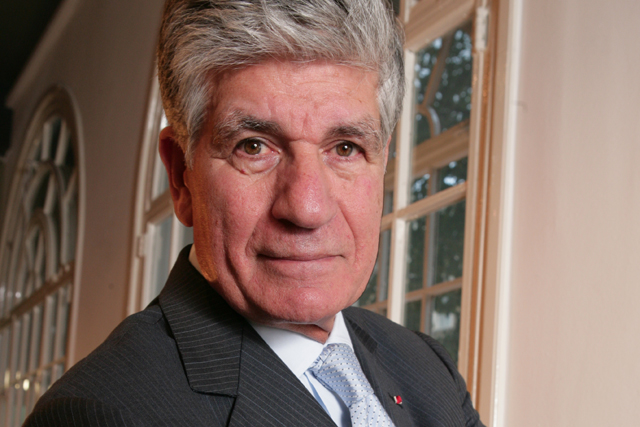1. Digital and the changing consumer
Our issue is how we can transform ourselves to deliver what clients are expecting from us in this changing world. Clients think that if there is a role for an agency, it is to lead this change, and this is what we are trying to do.
To this end, we have been heavily investing in two pillars – digital and emerging markets. When you look at where growth is coming from, you can see it is coming from digital and emerging markets. Period. It’s not coming from other parts of the business.
To change the weight of our operations in digital, we had to make acquisitions and go to areas where we have no experience, no talent, no expertise.
So we made the Digitas (acquired in 2006), Razorfish (2009) and Rosetta (2011) acquisitions because it deepened our understanding and our expertise in the digital field.
The challenge, concern and opportunity now is how can we make sure that we have the brightest and the best talent.
2. Brand management
Brands are already important to all our clients but, as the world becomes even more connected, they will become vital. For every kind of client, including retailers, strong brands will be their most important assets.
Managing their brands will become increasingly complex for our clients, and one of our most important jobs is to make this highly complicated world easy to navigate.
This will require different types of skills, training and education. Our people need to grasp the complexity of these issues and sharpen their skills, in order to help our clients understand what are the new opportunities of this connected world and how to maximise their advantages.
One very important issue to expect is how to keep the brand relevant for empowered consumers.
If I had to summarise what will happen I'd say the only thing people should expect is change, and more change.
3. Hiring, retaining and developing talent
When it comes to competing for talent against other advertising agencies, we win. We also have a very good rate of retaining that talent. The problem is when we create a new kind of digital talent, clients and technology companies then poach from us.
The good news is that the market is much more lively (as a result), but the bad news is these players have some clear advantages compared to us.
Start-ups offer adventure, technology platforms offer possibilities of making a lot of money. Demand for digital talent does cause wage inflation, though we have had a hiring and salary freeze for roughly 18 months, which has been lifted.
When Publicis has to hire someone now, they have to be digital natives. Every time people leave and we have to replace them or we have to expand, new staff have to be digitally literate. Clients are hiring young digital natives also, so we have to speak the same language.
The average age of Publicis Groupe is now 31. It was 34 a few years ago. It's not because we are changing mature people for youngsters, it's because we are growing so much that we are hiring a lot of newcomers who are changing the game.
4. Globalisation
Our second pillar for growth is the emerging markets. We recently announced the acquisition of China’s largest independent PR agency, Genedigi Group, with more than 400 professionals in key cities and access to a portfolio of clients.
We will continue to grow by acquisition in China and expect to complete one or two more in Brazil and in other emerging markets. Russia is interesting, South Africa is interesting, Turkey is fascinating, and we want to continue to grow there.
China is a difficult proposition. Believing that China is one market is a mistake – it is many markets. You also have a lot of advertisers in China that have difficulty in understanding how to work with an advertising agency and have no marketing department.
So we have to adapt ourselves to that; it can't be like in the old colonial times where you impose the Anglo-Saxon or the Western way on the local market.
It is improving, but the reality is that it has been a tough learning curve and we had some serious problems, as did our competitors.
One solution is to have Chinese people run our operations in China – some from Hong Kong, some from Singapore or Taiwan and from the Chinese mainland. Just to mention one, the head of ViVaki in China is a woman from the mainland, Yifei Li. She is fantastic, because she understands the Chinese soul and how to deal with the Chinese authorities and local CEOs.
5. Social media and social responsibility
Crowdsourcing is something that is helpful for some small operations. But when it comes to managing big brands and creating long-lasting campaigns, it is much more difficult. It is good for one-shot marketing, much less so when it comes to building for the future, which is what we are doing.
Interview by Noelle McElhatton, editor, Marketing


